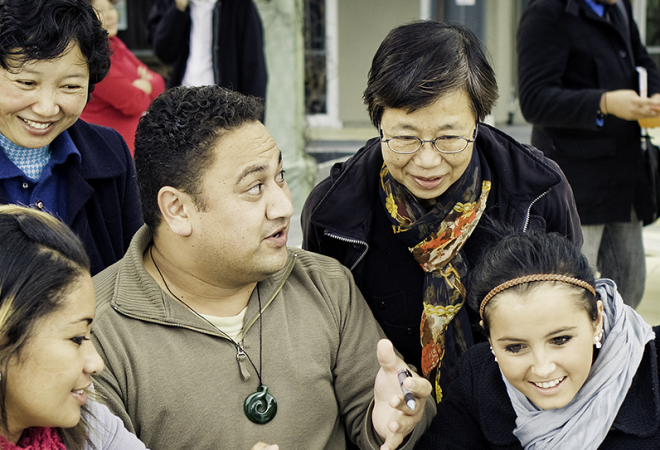
Creating team spirit and a culture of excellence among course participants
Status
Completed: 30 June 2011
Project Details
Across studies of leadership, innovation, creativity, and how to achieve success in life, the twin themes of team work and striving for excellence recur.
The practice of building team spirit and a culture of excellence had its starting point in a desire to close knowing–doing gaps among learners, and to reduce the tendency for people to acquire relevant information during training sessions but not apply it on the job.
This method of teaching embeds behaviours and practices that improve student achievement during learning and enhance subsequent task performance.
In 2006 the University of Auckland created a course founded on the notions of building team spirit and a culture of excellence. The course, Politics 767: Managing Research Projects, has since been offered every year in the same format.
We are able to trace the improved performance and attitudes of students by using empirical evidence gathered from student grades before and after the course over a period of time, comparing those grades with those of a control group, and evaluating interview data from cohorts of course participants.
In terms of student learning and subsequent performance, the outcomes offer compelling grounds for promoting team spirit and a culture of excellence in many educational settings.
Team

Michael Mintrom
The University of AucklandStatus
Funding
$5,240.00 (excl GST)
Key Findings
The following actions are essential in creating an environment conducive to teamwork and excellence (Mintrom, 2003). They were promoted in Politics 767: Managing Research Projects.
- Clarify Team Goals
Each member should be able to identify the purpose of the team and what he or she will get out of participating in it. - Align Incentives
All team members should be aware of how their participation will affect their performance evaluations; they should know that the product of their teamwork will be valued. - Manage Task Assignment
Breaking a major task into manageable components for individuals creates ownership and responsibility. - Clarify Process Steps
This enables team members to understand expectations and undertake to adhere to agreed completion dates. - Keep Communication Open
In the class environment this communication works both ways, from student to instructor and back again. Regular report-back times ensure that problems are discussed and actions and expectations are clarified. Students are also encouraged to develop good communication habits among themselves as peers and teammates. - Accentuate the Positive
Teams must find ways of reducing language and status barriers. This can be achieved through informal interactions or at the point when activities are being assigned in such a way that opportunities for interaction are maximised.
Key Recommendations
Effective team work and the pursuit of excellence are crucial ingredients for promoting creativity, knowledge generation, innovation, and the development of new products and services (Chesbrough, 2006; Goleman, 1998; Moss Kanter, 2004). Given this, the practice of building team spirit and a culture of excellence among course participants not only could influence other tertiary educators, but it should do so.
The practice could be applied with positive effects in many courses, ranging broadly in their substantive content. The practice reported here was developed in a postgraduate Political Studies course. However, the development of the course was informed by insights from literature spanning a range of disciplines, including business, economics, education, political science, and psychology. The practice of building team spirit and a culture of excellence in educational settings is highly relevant to the pursuit of social and economic advancement.
This document describes the practice of building team spirit and a culture of excellence in a desire to close knowing–doing gaps among learners.
(PDF, 386 KB, 20-pages)
- 30 June 2011